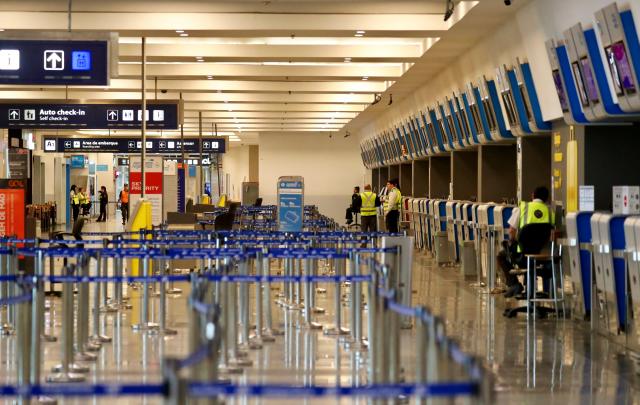BUENOS AIRES (Reuters) – Shops across Argentina were shuttered and the streets in the capital, Buenos Aires, were quiet on Tuesday after the country’s largest union called a 24-hour strike to protest President Mauricio Macri’s handling of the economy, which has been racked by runaway inflation.
Argentina’s main agricultural port of Rosario was closed by the strike, as were public transport services and private freight shippers, unions said. Financial markets were open as normal but traders said volumes were small.
The peso tumbled further on Tuesday after the head of Argentina’s central bank, in office for just three months, unexpectedly resigned, citing personal reasons.
“These are humiliating times for our country. It’s the people who are saying ‘enough,’” said Hugo Moyano, secretary general of the CGT, Argentina’s largest union confederation, which led the strike.
A statement from the Treasury Ministry said the strike would result in 31.6 billion pesos ($800 million) in lost economic output, around 0.2 percent of the country’s gross domestic product.
Argentina is the world’s biggest exporter of soymeal livestock feed and soyoil, as well as a major supplier of raw soybeans, corn and wheat.
“There is zero activity at the port. Neither loading nor unloading of cargoes,” said Guillermo Wade, head of Argentina’s Camera for Port and Maritime Activities (CAPyM).
Teachers and public sector workers joined the transport unions in the strike, which some unions started on Monday.
A severe drought this year helped to unexpectedly tip Argentina – Latin America’s third-largest economy – into recession, shaking investors’ faith in the ability of Macri’s government to service its foreign debt next year.
To restore investor confidence, Macri is renegotiating a $50 billion standby deal with the International Monetary Fund signed in June.
A government source told Reuters on Monday that a deal could be reached this week to increase the size of the credit line, with an additional figure of $3 billion to $5 billion cited by local media being “close to reality.”






